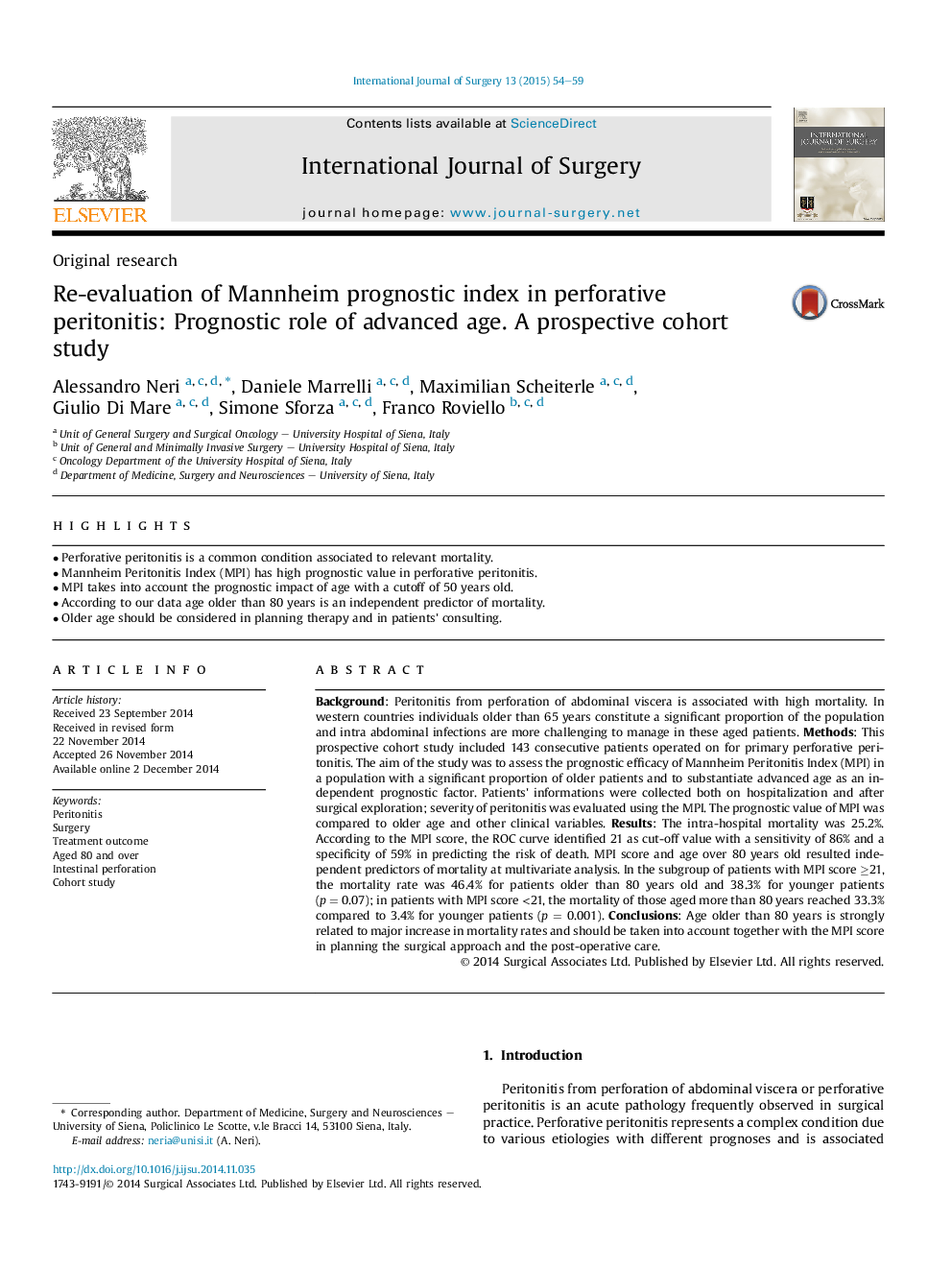| کد مقاله | کد نشریه | سال انتشار | مقاله انگلیسی | نسخه تمام متن |
|---|---|---|---|---|
| 6251544 | 1611981 | 2015 | 6 صفحه PDF | دانلود رایگان |
- Perforative peritonitis is a common condition associated to relevant mortality.
- Mannheim Peritonitis Index (MPI) has high prognostic value in perforative peritonitis.
- MPI takes into account the prognostic impact of age with a cutoff of 50 years old.
- According to our data age older than 80 years is an independent predictor of mortality.
- Older age should be considered in planning therapy and in patients' consulting.
Background: Peritonitis from perforation of abdominal viscera is associated with high mortality. In western countries individuals older than 65 years constitute a significant proportion of the population and intra abdominal infections are more challenging to manage in these aged patients. Methods: This prospective cohort study included 143 consecutive patients operated on for primary perforative peritonitis. The aim of the study was to assess the prognostic efficacy of Mannheim Peritonitis Index (MPI) in a population with a significant proportion of older patients and to substantiate advanced age as an independent prognostic factor. Patients' informations were collected both on hospitalization and after surgical exploration; severity of peritonitis was evaluated using the MPI. The prognostic value of MPI was compared to older age and other clinical variables. Results: The intra-hospital mortality was 25.2%. According to the MPI score, the ROC curve identified 21 as cut-off value with a sensitivity of 86% and a specificity of 59% in predicting the risk of death. MPI score and age over 80 years old resulted independent predictors of mortality at multivariate analysis. In the subgroup of patients with MPI score â¥21, the mortality rate was 46.4% for patients older than 80 years old and 38.3% for younger patients (p = 0.07); in patients with MPI score <21, the mortality of those aged more than 80 years reached 33.3% compared to 3.4% for younger patients (p = 0.001). Conclusions: Age older than 80 years is strongly related to major increase in mortality rates and should be taken into account together with the MPI score in planning the surgical approach and the post-operative care.
Journal: International Journal of Surgery - Volume 13, January 2015, Pages 54-59
